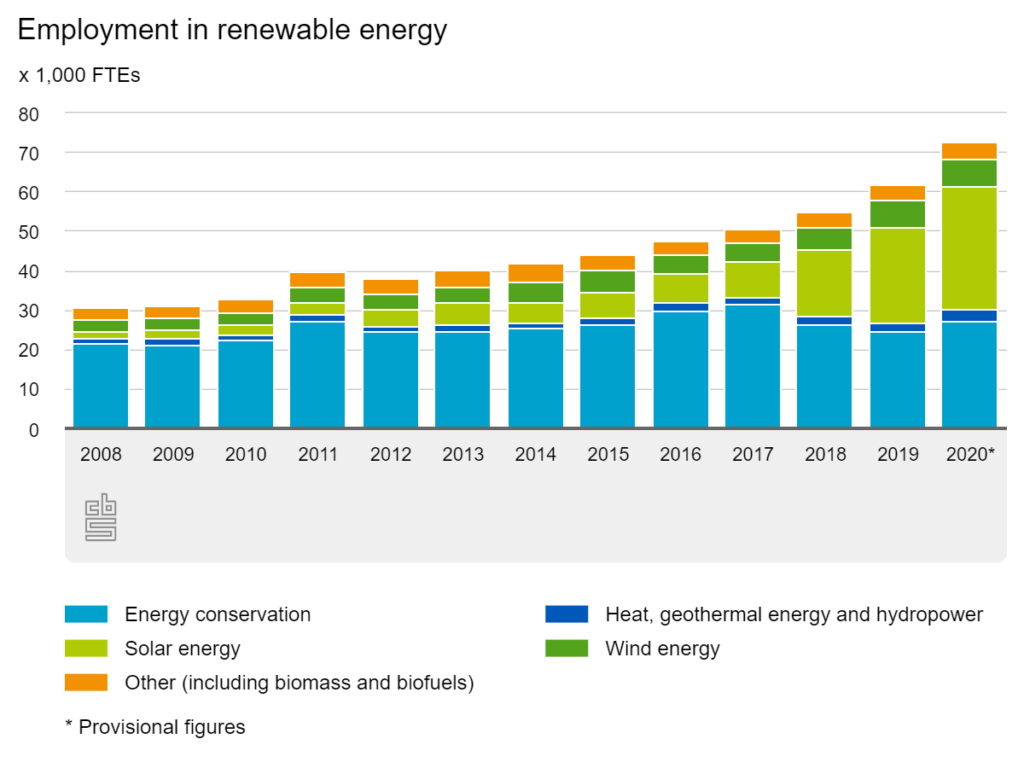The environmental sector in the Netherlands is rapidly gaining prominence, now constituting approximately 2.6 percent of the nation’s GDP, a notable increase from 1.7 percent in 2001. This growth is indicative of the sector’s evolving significance in the Dutch economy, emphasizing activities aimed at environmental preservation and efficient resource management. Moreover, the sector’s expansion has stimulated a rise in demand for professionals skilled in sustainability, renewable energy, and environmental technologies, promising a brighter future for both the sector and aspiring professionals.
A Steadily Growing Environmental Sector
Over the years, the environmental sector has made considerable strides in its contribution to the Dutch economy. The share of activities primarily concerned with managing natural resources has doubled since 2001. This surge is intricately linked with the ongoing energy and climate transition. Employment within the domain of renewable energy has seen a significant upswing, particularly in solar energy, with a remarkable eleven-fold increase in employment related to solar panel installations between 2011 and 2020. Similarly, employment in wind energy doubled during the same period. Although the employment figures remained relatively constant in heat, geothermal energy, and hydropower activities, the overall sector’s growth trend is palpable.
Benchmarking Against the European Union
Compared to the European Union’s average contribution of environmental activities to GDP, which stood at 2.3 percent in 2019, the Netherlands showcased a similar contribution. The sector’s size and influence were particularly noteworthy in Finland, Estonia, and Austria, where shares of 5.8 percent, 4.6 percent, and 4.2 percent of GDP were recorded, respectively. These countries are characterized by robust renewable energy production and active management of forest areas, significantly impacting their GDP. On the other end of the spectrum were Ireland, Malta, and Belgium, with the lowest contributions to GDP within the environmental sector.
Rising Professionals Fueling the Environmental Sector
The impressive growth and influence of the environmental sector in the Netherlands have not only boosted its economic contribution but have also attracted a growing number of professionals. As the sector expands and diversifies, the demand for skilled individuals versed in sustainability, renewable energy, environmental conservation, and related fields is witnessing an upswing. Professionals specializing in solar and wind energy, environmental technology, and sustainable resource management are increasingly finding exciting opportunities within this burgeoning sector. This trend signifies a promising future for both the environmental sector and professionals aiming to make a significant impact in this vital domain.

In conclusion, the growth and transformation of the environmental sector in the Netherlands underscore the nation’s commitment to sustainability and eco-conscious practices. This burgeoning sector is not only contributing significantly to the economy but also paving the way for a greener and more sustainable future. With increasing opportunities and employment prospects, professionals keen on making a difference in environmental sustainability have a promising landscape to thrive and contribute.
Original Source: Environmental sector keeps growing in importance by CBS Statistics Netherlands